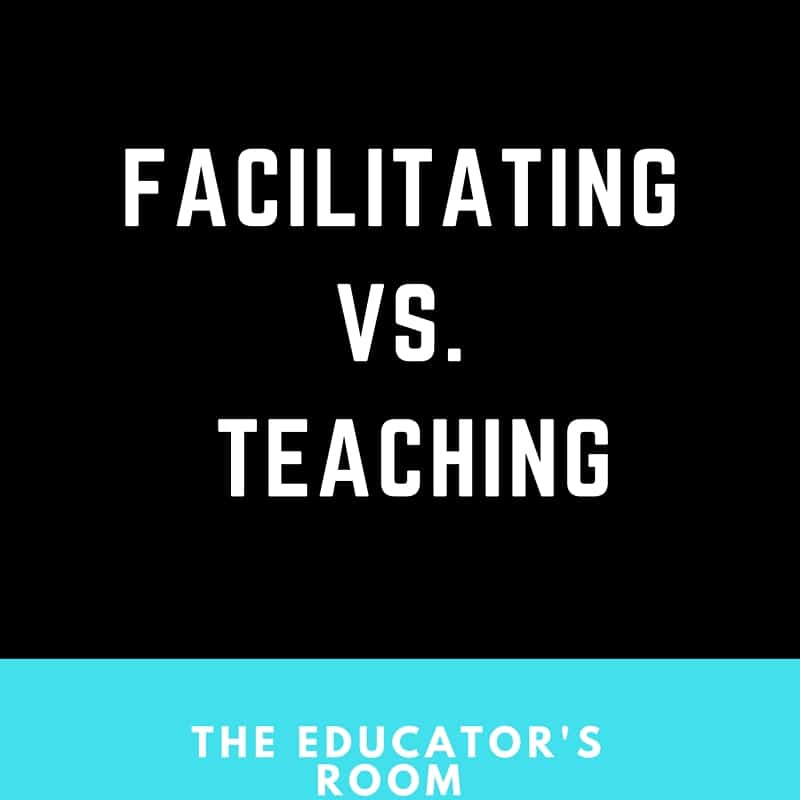Facilitating in the classroom is a different bird than teaching in front of the class. When most people think of teaching, they picture an adult standing in front of a classroom giving information to students. That is exactly the picture that I have from my K-12 school days. For many decades, when public education was a means to train students for jobs in factories it was appropriate. But we are now teaching children with very diverse backgrounds all of whom have been exposed to vast amounts of technology. Today’s students are much more familiar with active learning than sitting still and listening to someone else provide information and expect them to remember it. Facilitating in your classroom provides an entirely different dynamic and once you get into it and you might find a new love for teaching.
I was first introduced to facilitating in the classroom when I was part of a cohort of teachers who were being trained as math teacher leaders under a federal grant. We were learning to use best practices so that we could share the concepts we were taught with math teachers in our schools. I was intrigued by the idea of facilitating instead of continuing to do “stand and deliver” teaching. Once I caught the facilitating bug, I never went back to traditional teaching.
[fusion_builder_container hundred_percent=”yes” overflow=”visible”][fusion_builder_row][fusion_builder_column type=”1_1″ background_position=”left top” background_color=”” border_size=”” border_color=”” border_style=”solid” spacing=”yes” background_image=”” background_repeat=”no-repeat” padding=”” margin_top=”0px” margin_bottom=”0px” class=”” id=”” animation_type=”” animation_speed=”0.3″ animation_direction=”left” hide_on_mobile=”no” center_content=”no” min_height=”none”][bctt tweet=”So how does facilitating in the classroom work? ” username=”EducatorsRoom”]
Facilitating doesn’t mean that you give up control. It doesn’t mean that you will never “teach” in the traditional sense again. It does mean that you have to plan to present information differently. It will also help using groups with your students much easier. More importantly, it will get your students engaged, empower them to be responsible for some of their own learning and allows you to work with those who need extra help through differentiation.
I had hoped when I began this project that my students would be engaged and like being able to “show what they know” rather than taking a test that had problems that did not connect to the real world. They far surpassed my expectations of engagement. I provided boxes for them to use as a base for the kitchen models they were to bring in the rest of the supplies they wanted to use. I found myself with one closet in my room full of scraps of linoleum, pieces of rug and wooden flooring, wallpaper, and paint etc. They made the kitchen cabinets for “homework” and a few groups even made curtains for the windows – yes to scale! While groups that were completely comfortable working on the project were engaged, I used the opportunity to work with those who were struggling with any mathematical part of it. For most of those struggling they just needed help setting up the ratios to make their model to scale.
The best test of this trial of facilitating in the classroom was the Friday when we were finishing the project. We had a visit from a group of administrators from the central office. They walked around my room asking students questions about the project and all of the kids gave the most amazing explanations!
Let me conclude this article by telling you that the students in these classes who completed this project were 8th graders. They were attending an urban middle school. During this entire project, I did not have a single behavior problem not even an argument because all of the students were engaged in the activity.
Have you ever tried facilitating in your classroom?
 [/fusion_builder_column][/fusion_builder_row][/fusion_builder_container]
[/fusion_builder_column][/fusion_builder_row][/fusion_builder_container]




